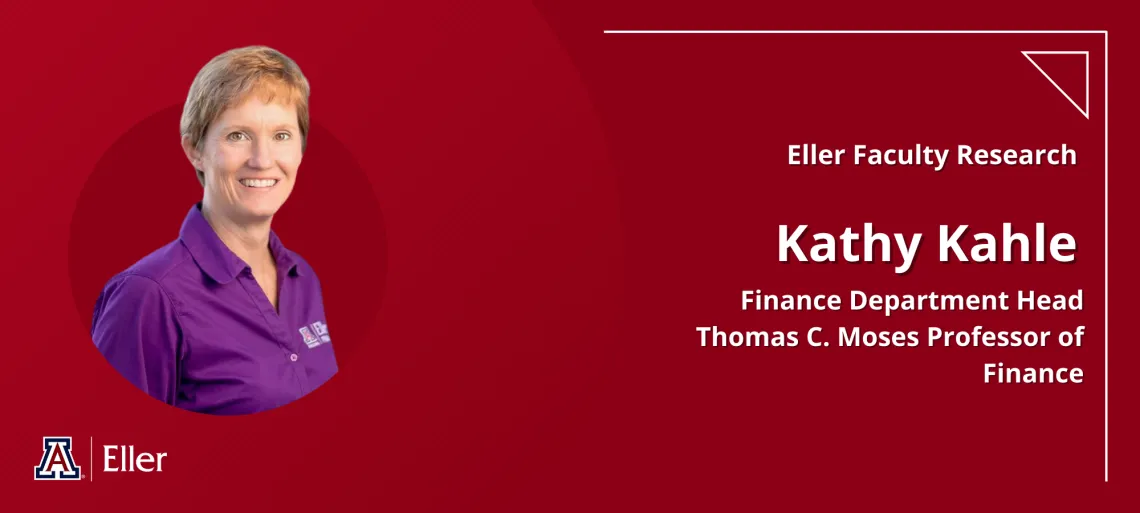Study from University of Arizona Eller College of Management Student and Professor Examines Payout Policy of Non-Regular Employment

University of Arizona Eller College of Management student JiHoon Hwang and Finance Department Head and Thomas C. Moses Professor in Finance Kathleen Kahle recently revealed new study results in a paper titled “Non-Regular Employment and Payout Policy: Evidence from the Massachusetts Independent Contractor Law.”
Their study examines the impact that the usage of independent contractors (ICs) has on a firm in terms of labor flexibility and cost savings. For evidence, Hwang and Kahle use the Massachusetts Independent Contractor Law, which makes it more difficult for a firm to classify workers as ICs. This regulation was adopted in 2004 to alleviate the misclassification practice. "Employers that improperly classify employees as independent contractors deprive these workers of proper Social Security contributions, worker’s compensation insurance and other benefits, while also unfairly reducing employers’ state and federal tax withholding, and related obligations”, according to the Massachusetts Attorney General Martha Coakley. In their study, Hwang and Kahle exploit the Massachusetts Independent Contractor Law to study how independent contractors affect firm behavior.
“We find that affected firms show a decrease in profitability and become more susceptible to operating risk,” says Kahle.
ICs are easier for a firm to dismiss and save costs for employers because firms do not have to pay certain payroll taxes (e.g., unemployment insurance). Because of these benefits, firms have incentives to ‘misclassify’ workers as independent contractors when they should have been instead classified as employees. Based on their research, Hwang and Kahle found that after the law adoption, firms' profitability decrease and they become more susceptible to operating risk. As a result, “such companies become less generous in paying out to their shareholders; in particular, there is a decrease in stock repurchases” says Kahle. Their study implies that the cost ‘savings’ from the misclassification seemed to have accrued to the benefit of, at least, some firms and their shareholders.

